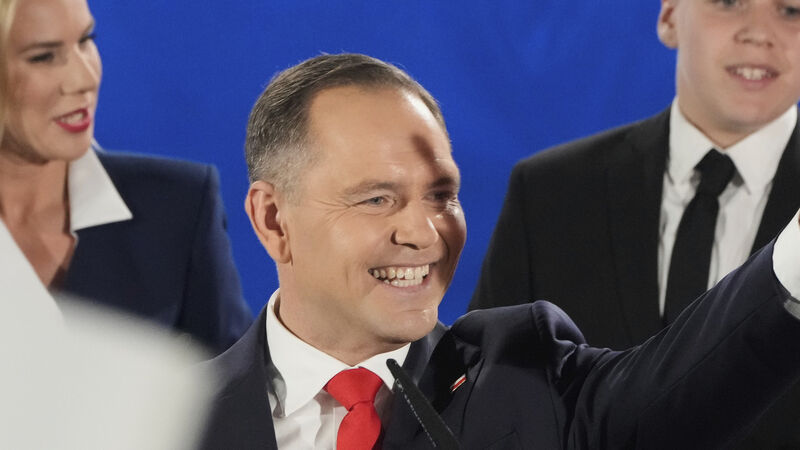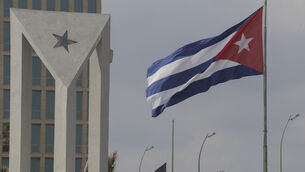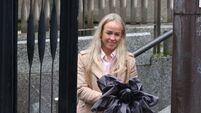The tiny margin of the victory for the hard right in Poland’s presidential election is going to place a heavy strain on the government of Donald Tusk, but for the media to describe Karol Nawrocki as “pro-Trump” is to miss the point.
In all right versus left political battles these days, every single one is judged on the similarity to, or popularity with, the current American president, irrespective of their actual policies.
Already a subscriber? Sign in
You have reached your article limit.
Subscribe to access all of the Irish Examiner.
Annual €130 €80
Best value
Monthly €12€6 / month
Introductory offers for new customers. Annual billed once for first year. Renews at €130. Monthly initial discount (first 3 months) billed monthly, then €12 a month. Ts&Cs apply.
CONNECT WITH US TODAY
Be the first to know the latest news and updates














